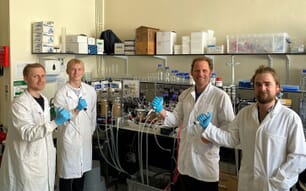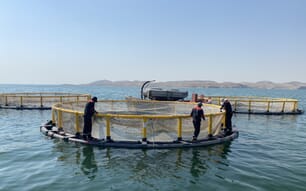Peter Jinman, FAWC Chairman, said: “While protection of fish welfare is challenging, FAWC recognises that the aquaculture industry and others have addressed this subject seriously since FAWC’s last Report on the issue in 1996 and have made many improvements to the welfare of farmed fish. Increases in numbers of fish being produced will increase the challenge to be addressed. FAWC’s Opinion has focussed on what it sees as some of the priority welfare issues.”
Peter Jinman also said: “The fundamental differences between fish and terrestrial farm animals have strong implications for consideration of farm systems and fish welfare. There is currently a lack of data on what good fish welfare is and which welfare outcomes are important to fish. We recommend research to improve the knowledge base.”
The Chairman continued: “FAWC sees merit in increased consideration of the welfare of individual fish, in addition to monitoring the health and wellbeing of the population. We recognise that the ability to deal with an individual fish with a welfare problem is restricted in some systems, however, we believe that increased emphasis on individuals throughout production systems is important both for ethical and commercial reasons.”
Peter Jinman concluded: “Farmed fish are not afforded the same regulatory protection as other farmed animals. In addition to the duty of care under the main Animal Welfare legislation and the production standards applied by industry and others to safeguard fish welfare, we recommend that governments should extend the baseline requirements for terrestrial species contained in the Welfare of Farmed Animals Regulations to farmed fish (with suitable modifications), so that there is a
clear legal basis for enforcement of basic requirements in all farmed fish species.”



